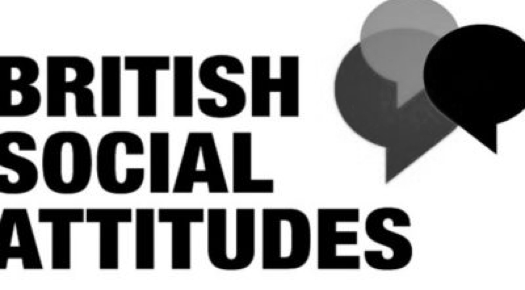
According to the latest data on religious affiliation from the National Center for Social Research’s British Social Attitudes, the proportion of people in Britain who describe themselves as having no religion is at its highest ever level. The majority -- 53% -- of people said they didn’t belong to any organized religion, which is up 5% from just a year ago. The proportion of non-believers has increased gradually since the survey began in 1983, when the proportion saying they had no religion stood at 31%. Fifteen percent of the population said they belong to the Church of England, 9% to the Catholic Church, 17% to other Christian denominations, and 6% to other religions.

Researchers with the British Social Attitudes survey asked participants, “Do you regard yourself as belonging to any particular religion?” If they said yes, they were asked which one. It is different from the list with a multiple choice of religions, with “No religion” as an option because, if the question was formulated like that, it’s possible many people would have responded with the religion of their youth despite no longer practicing it.
The decline in religious affiliation is hitting the Church of England particularly hard. Just 15% of people in Britain consider themselves Anglican, half the proportion who said this in 2000. Just 3% of those aged 18-24 described themselves as Anglican, compared to 40% of those aged 75 and over. It seems that young people are particularly underrepresented at the Church of England. The proportion of people describing themselves as Catholic has remained relatively stable – at around 1 in 10 – over the past 30 years. Humanists UK has said the figures must raise fresh questions about the place of the churches in the running of state schools and their other state-funded privileges.

The question is why does the official church still get funding from the government? Humanists UK Chief Executive Andrew Copson asked: “How can it be right that 97% of young people today are not Anglicans, but some 20% of the state schools to which their children will go belong to the Church of England? More generally, how can the Church of England remain in any meaningful sense the national legally established church, when it caters for such a small portion of the population?”
Terry Sanderson, president of the National Secular Society, said: “These statistics indicate that the time has come for this country to have a serious debate about the place of religion in our society.”
Almost an entire generation of young adults has been dissuaded by the fact that the church does not accept LGBT Christians and has resistance to same-sex marriage. Some young people also view the Church of England as failing to embrace and represent the diversity of 21st-century Britain.
Photo Credits: GScene
